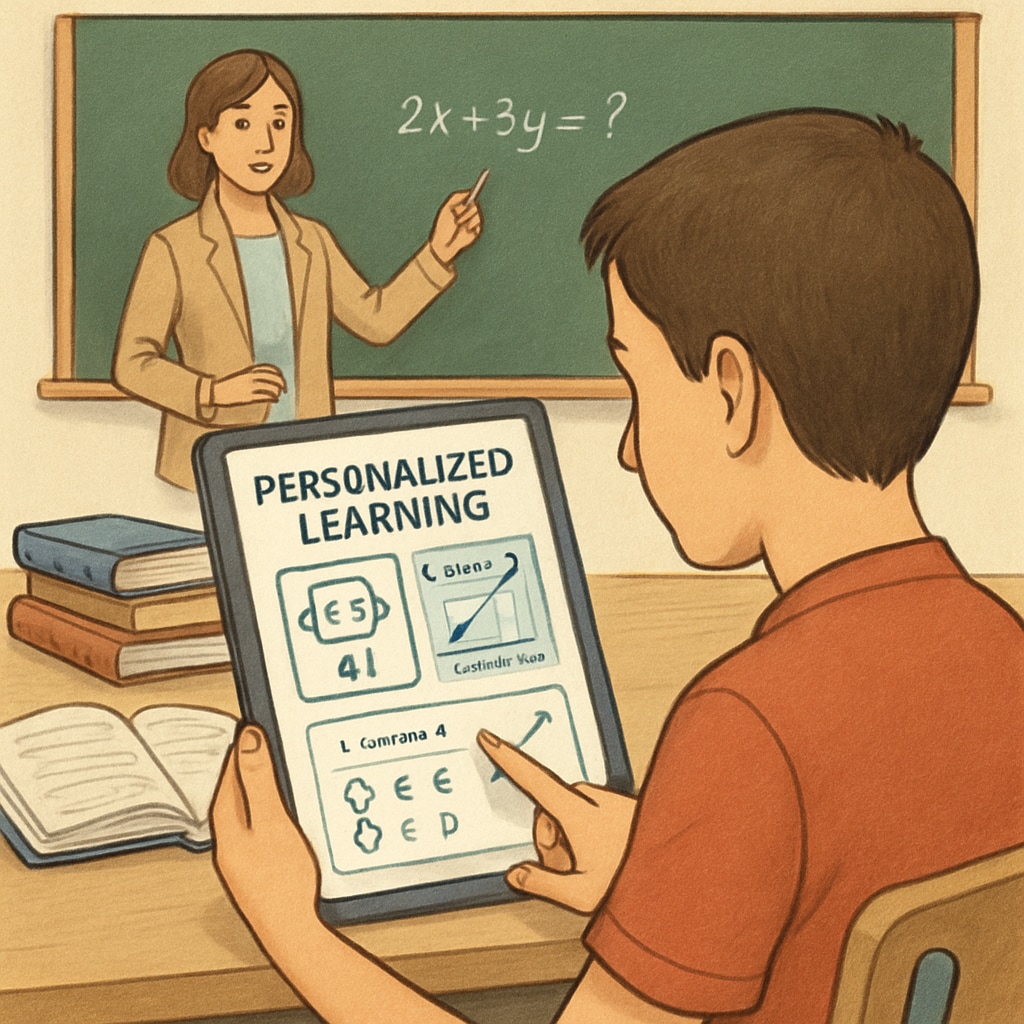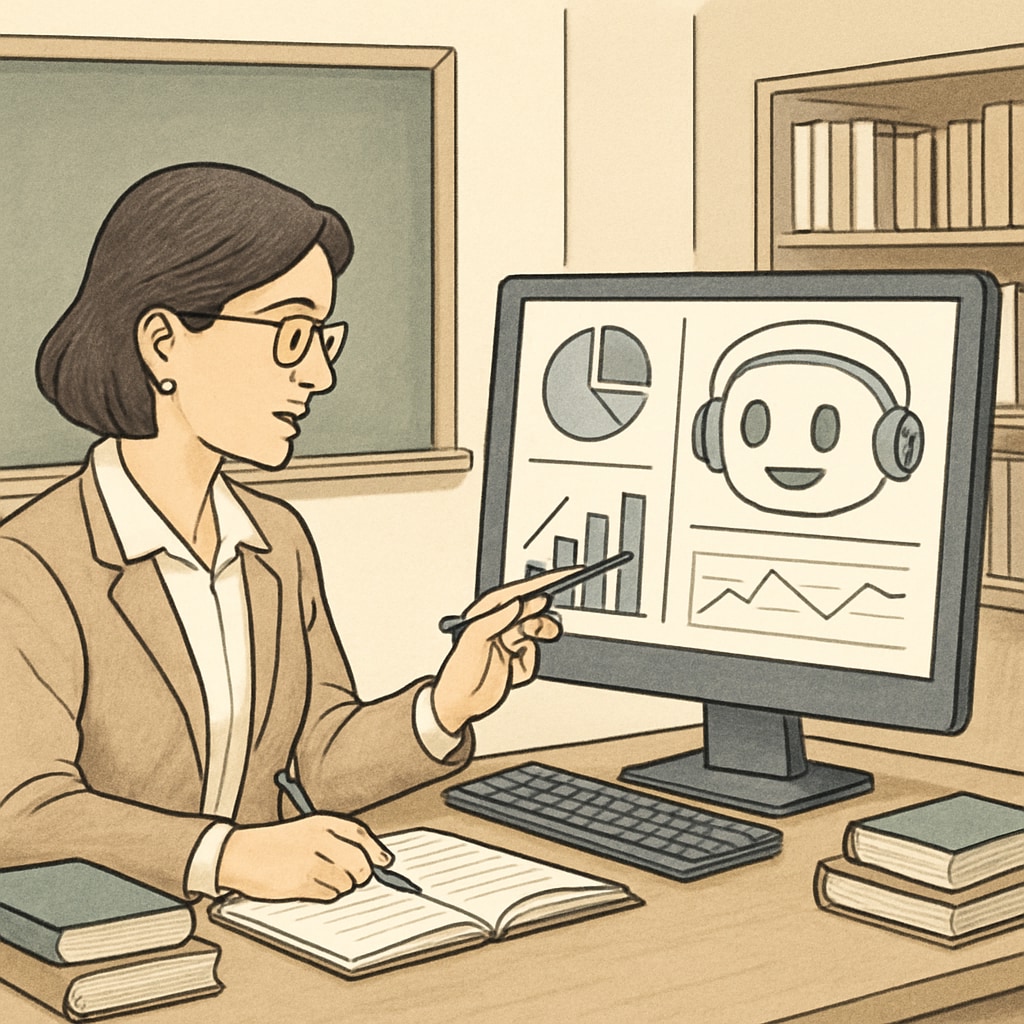Artificial Intelligence (AI) is revolutionizing various industries, and its integration into school education is poised to redefine the K12 learning ecosystem. From personalized learning experiences to a reimagining of teacher roles and assessment systems, AI’s influence on education offers both immense opportunities and significant challenges. As we look ahead to the next 5–10 years, educators and policymakers must embrace this transformation while addressing its complexities.
Personalized Learning: Tailoring Education to Individual Needs
One of the most profound impacts of AI in education lies in its ability to create personalized learning experiences. AI-driven platforms can analyze student performance, preferences, and learning styles to deliver custom content and adaptive learning pathways. For example, intelligent tutoring systems (ITS) such as Carnegie Learning and DreamBox Learning use algorithms to adjust instruction based on a student’s progress in real time. These tools empower students to learn at their own pace and ensure that no learner is left behind.
Moreover, AI can identify areas where students struggle and provide targeted interventions. This proactive approach enhances student outcomes and significantly reduces the burden on teachers to track individual progress manually.

Redefining the Role of Teachers in AI-Powered Classrooms
While AI introduces new dimensions to education, it does not replace the need for human educators. Instead, it transforms their roles. Teachers in AI-powered classrooms may shift from being primary instructors to facilitators of learning. By leveraging AI systems, they can focus on fostering creativity, critical thinking, and social skills that machines cannot replicate.
For example, AI can automate routine tasks such as grading and administrative work, freeing up teachers to engage in more meaningful interactions with students. Additionally, AI-powered analytics can provide real-time insights into classroom dynamics, enabling teachers to adapt instructional strategies effectively.
However, this transformation also requires educators to acquire new skills, such as understanding AI technologies and integrating them into their teaching practices. Continuous professional development will be essential to ensure teachers can navigate this evolving landscape.

Transforming Assessment Systems Through AI
Traditional assessment methods often focus on summative evaluations, such as standardized tests, which may not provide a holistic view of a student’s abilities. AI has the potential to revolutionize assessment systems by offering formative evaluations that track a student’s progress continuously. For instance, machine learning algorithms can analyze written assignments, projects, and even speech patterns to assess critical thinking, creativity, and communication skills.
AI-powered assessments also reduce biases commonly associated with human grading, ensuring fair and accurate evaluations. Additionally, these systems can generate detailed feedback to help students understand their strengths and areas for improvement.
However, the reliance on AI for assessments raises concerns about data privacy and ethical use. Schools must implement robust policies to protect student information while benefiting from these advanced systems.
Challenges and Ethical Considerations
While AI offers immense potential, its integration into school education is not without challenges. Data security and privacy are significant concerns, especially when sensitive student information is collected and analyzed. Schools and technology providers must adhere to strict regulations to safeguard this data.
Another key challenge is ensuring equitable access to AI technologies. Not all schools have the resources to implement advanced systems, potentially widening the digital divide. Policymakers must prioritize funding and infrastructure development to ensure all students can benefit from AI-enhanced education.
Finally, ethical considerations regarding the role of AI in decision-making processes must be addressed. Transparency and accountability are critical to building trust among educators, parents, and students.
Preparing for the Future of AI in Education
As AI continues to evolve, schools, educators, and policymakers must proactively adapt to this transformation. Key steps include:
- Investing in teacher training programs to equip educators with AI-related skills.
- Developing inclusive policies to ensure equitable access to AI technologies.
- Establishing data privacy regulations to protect student information.
- Encouraging collaboration between schools and technology developers to create tailored solutions.
By addressing these areas, the education sector can harness the full potential of AI while mitigating its risks.
In conclusion, artificial intelligence is reshaping the future of school education by enabling personalized learning, redefining teacher roles, and transforming assessment systems. While challenges exist, the opportunities are immense. Educators and policymakers must embrace this change with a forward-thinking approach to ensure a brighter future for K12 education.
Readability guidance: Use concise paragraphs and bulleted lists to summarize key points. Incorporate transition words (such as however, therefore, in addition) to enhance flow and readability. Maintain a balance between technical insights and accessible language.


